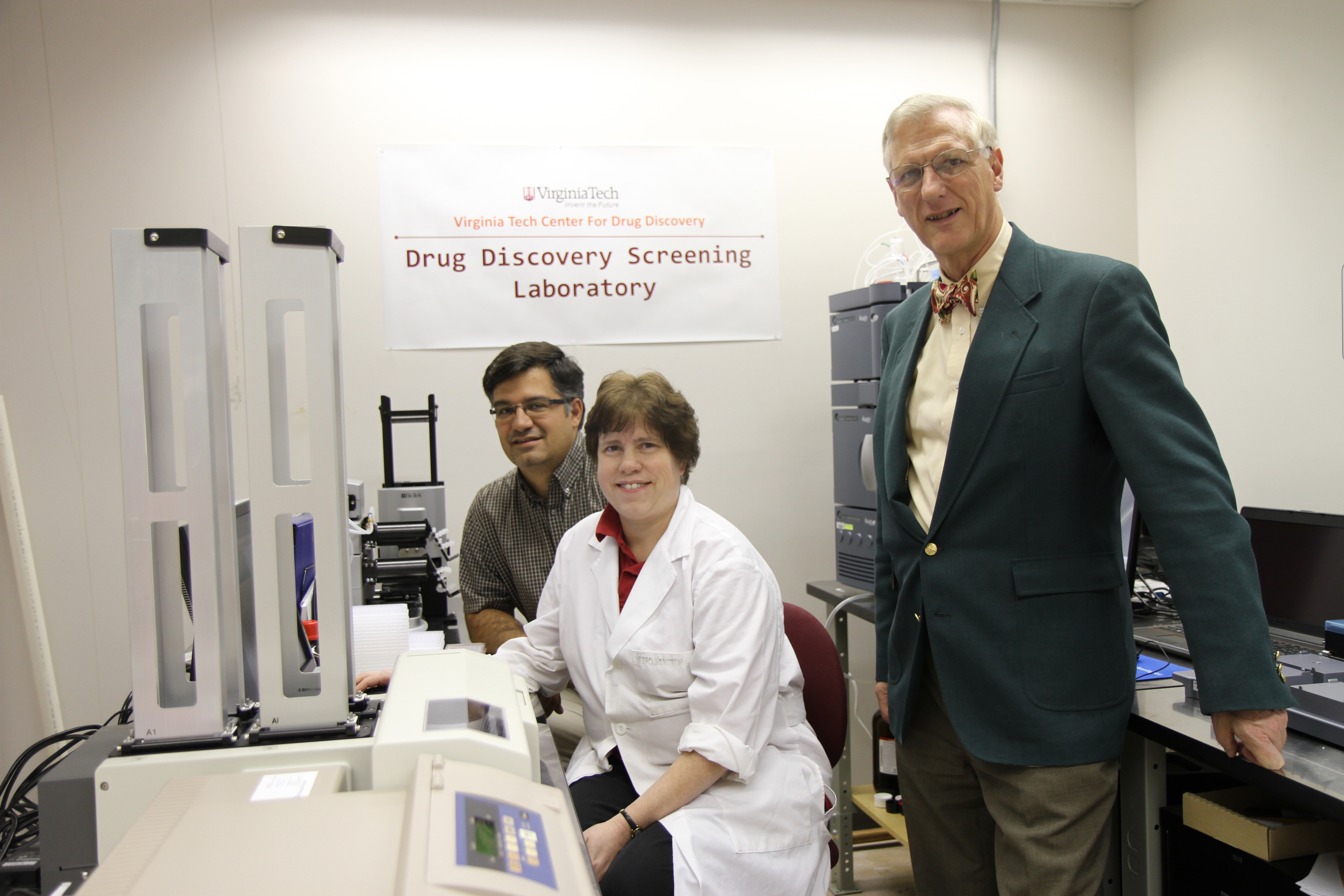Virginia Tech drug screening laboratory available to life sciences community

A new laboratory in Fralin Hall, administered by the Virginia Tech Center for Drug Discovery, provides more than 35,000 chemical compounds for screening by Virginia Tech researchers.
The three libraries of compounds were purchased from Analyticon, MicroSource, and Chembridge, and include natural products and synthetic drug-like compounds. The laboratory is equipped with robotic systems for assay preparation in microtiter plates and has the capacity to run biological assays based on fluorescence change, absorbance, and luminescence.
The overall goal of the drug screening laboratory, according to the drug discovery center's director and University Distinguished Professor David Kingston, is to further the discovery of bioactive compounds. The plan is to steadily increase the number of compounds in the repository and the number of bioassays available.
"Researchers can take two different approaches when using the laboratory," said Kingston. "If they have a set of compounds they have made, they can have it tested in one of the assays available in the laboratory. Alternately, if they have developed a new assay, they can work with the screening laboratory to install their assay and test it against the compounds in the repository. This will probably lead to the discovery of bioactive compounds which can serve as lead compounds for drug discovery."
In order to use the screening laboratory’s services, researchers should contact the laboratory director Pablo Sobrado, associate professor of biochemistry and a principal participant of the Virginia Tech Center for Drug Discovery, or the facility manager Nancy Vogelaar.
In 2012, Virginia Tech established a new Center for Drug Discovery to accelerate research that could lead to new treatments for cancer, Alzheimer’s disease, cardiovascular disease, atherosclerosis, diseases of the central nervous system, and parasitic diseases such as malaria and Chagas disease. The center is housed in the College of Science, with support from the College of Science, the Fralin Life Science Institute, the Institute for Critical Technology and Applied Science, and the College of Agriculture and Life Sciences.




